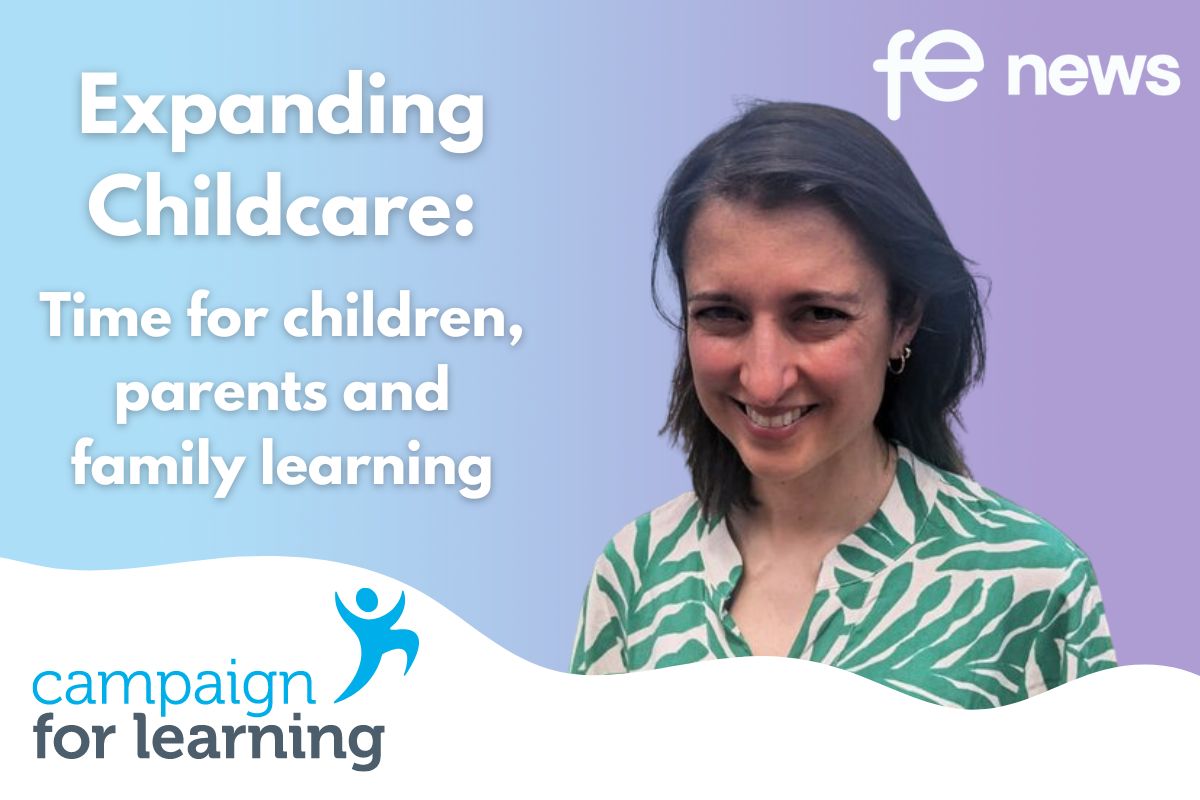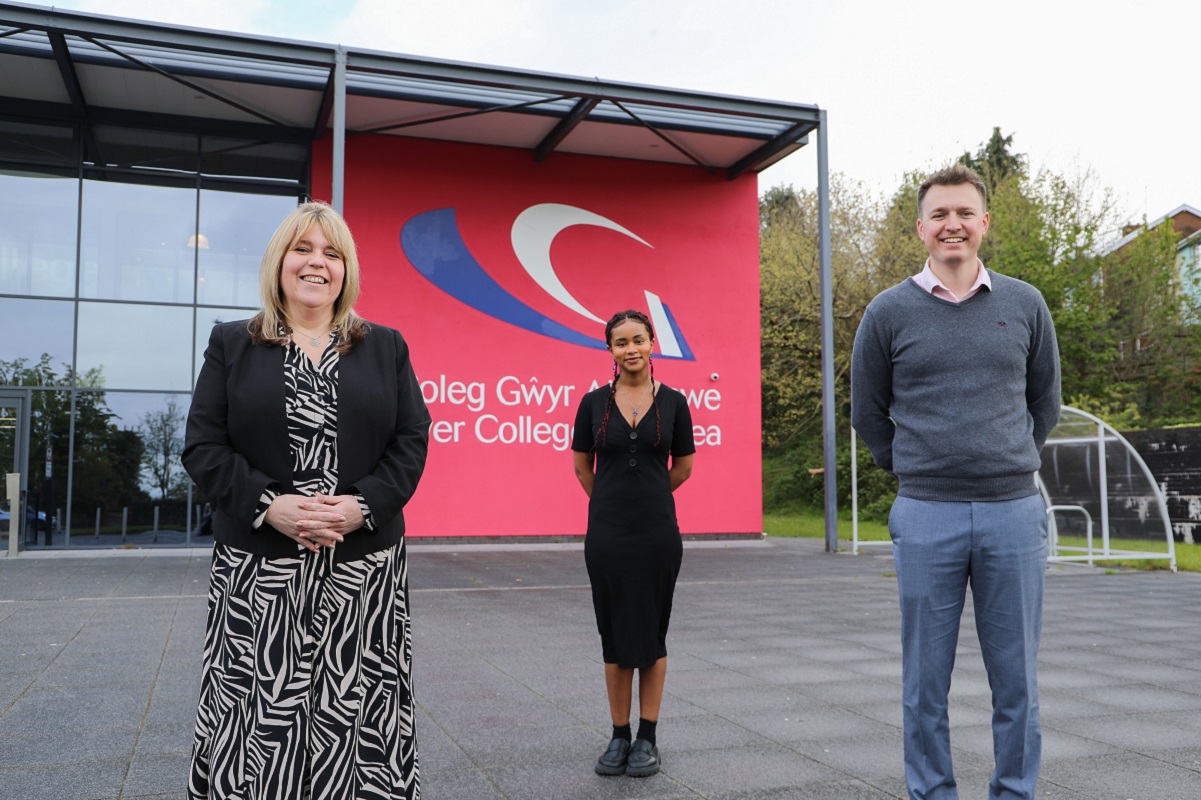Improving childcare quality to support educational outcomes

Expanding Childcare: Time for children, parents and family learning
Some of the most expensive childcare in the world
In the past year, we’ve seen childcare rise to the top of the priority list for both the Conservative Government and Labour Opposition. And it’s no wonder – childcare in England is less affordable than ever, and among the most expensive in the world (OECD).
The cost of childcare is keeping many women out of the workforce (Economics Observatory, 2022) and pushing those on the margins of poverty into it (CPAG, 2015).
So, it makes sense that both major parties would recognise the salience of this problem to voters, and the necessity of solving it to unlock economic growth and secure social equality for the next generation. However, when we talk about childcare policy, we must acknowledge that these goals – economic growth and social equality – aren’t always aligned.
Childcare vs early years education
Childcare, which aims to increase workforce participation, is not synonymous with early years education, which aims to give every child the best educational start in life.
We know that the current situation results in gaping academic inequality: poorer children start reception an average of 4.5 months behind their wealthier peers, accounting for 40% of the attainment gap at 16 (EPI, 2018).
Children in greatest need have a lower entitlement to free childcare
The poorest children are least likely to access any sort of childcare (Sutton Trust, 2021) .
Currently, there is an entitlement to 15 hours of free childcare per week for 38 weeks for all 3 to 4 year olds and for some 2-year-olds from disadvantaged backgrounds or with additional needs. From April 2024, working parents of two-year-olds will be able to access 15 hours of free childcare – equivalent to 570 hours per year. From September 2024, 15 hours of free childcare will be extended down to the age of 9 months – for working parents
– equivalent to 570 hours per year. From September 2025, working parents of children aged 9 months and upwards will be entitled to 30 hours free childcare per week right up to their child starting school – equivalent to 1,140 hours per year (DfE Education Hub, June 2023).
The Government’s recent extension therefore only applies to working parents. While extending free hours only to those in work may arguably serve the short-term economic purposes of childcare, it does not best serve the educational purposes.
However, the solution can’t be as simple as bestowing free hours to all children – even if a government was willing to make such an investment – there simply isn’t the supply of childcare providers or staff.
The ‘free’ entitlement hours are currently underfunded by government, so providers currently must rely on paid hours to subsidise the free ones (Early Years Alliance, 2023).
Many nurseries cannot afford to take children who are only accessing free hours. 300 nurseries closed their doors last year (Nursery World, 2022), and it is predicted that many more will do so when the extension of free hours to younger children is rolled out (Early Years Alliance, 2023).
Already, there is worse provision of childcare in poorer neighbourhoods and a staggering lack of provision for children with special educational needs and disabilities (SEND). Less than 18% of local authorities have enough childcare for children with disabilities (Coram, 2023).
The financial realities of nurseries underpin this; current funding for children not paying fees, and for those with SEND, is insufficient to cover the costs of early years settings.
If the Government were to extend free hours to all children, it would not solve the problem of access – those providers that did survive would still be incentivised to prioritise fee- paying children and those without SEND.
There must be properly funded childcare places, as well as the funding, training, and incentives for providers to accept and support children with SEND.
Staff are essential to high-quality provision
And still, even if there were fully-funded places for all children regardless of need, an additional piece of the puzzle would remain – ensuring that provision is high-quality. Without quality provision for all, the gap that exists at the start of reception is unlikely to close.
A huge part of ensuring quality is having enough well-equipped staff. When the Government announced its extension of free nursery hours in the last budget, it acknowledged the staffing challenge in this by increasing staff ratios. However, this raises questions about quality, and will put more pressure on an already beleaguered workforce.
The early years workforce is experiencing a recruitment and retention crisis, with difficulties recruiting qualified staff, a high proportion of EU nationals, and concerns that older, more experienced and qualified staff who retire will not be replaced (EPI, 2019).
Contributing factors to this include low pay, which providers cannot afford to increase, the low status of the profession, and a lack of opportunity for progression. Turnover in staff, and under-qualified or less experienced staff, pose risks for children – particularly those facing the greatest challenges (EPI, 2020).
We also need to think more creatively about routes into the workforce for currently untapped labour – particularly parents, and training and supporting those delivering childcare outside of nurseries, such as childminders. All of this should form a holistic strategy for recruiting, training, progressing and rewarding the early years workforce.
Recommendation 1
The Government should introduce universal free hours for all children aged 9 months to the start of school, funded at the true cost to providers to enable high-quality provision and fair pay for staff.
Recommendation 2
The Government should remove the barriers to nurseries providing places to low-income and disabled children, including bringing the Early Years Pupil Premium in line with that for primary pupils, and increasing the Disability Access Fund.
Recommendation 3
The Government must develop a broader and stronger Early Years Workforce Strategy, including creative solutions for entry points into the profession, providing continuing professional development and progression, and building respect and professionalism for the profession, across all settings.
By Janeen Hayat, Director of Collective Action, Fair Education Alliance
Campaign for Learning has released a new series of articles, Expanding Childcare: Time for children, parents and family learning.
See below when each article will be published on FE News:
Part One: Childcare the welfare state – 20th July
1. Will Snell, Chief Executive, The Fairness Foundation
Childcare and a new social contract
2. Anneka Dawson, Head of Pre-16 Education, Ceri Williams, Senior Research Fellow, and Alexandra Nancarrow, Research Fellow, Institute for Employment Studies
The childcare sector: Providers and the workforce in England
Part Two: Childcare and time for work – 21st July
3. Paul Bivand, Independent Policy Analyst
Women, employment and childcare
4. James Cockett, Labour Market Economist and Claire McCartney, Policy Adviser, Resourcing and Inclusion, CIPD
The planned childcare entitlements and progression into work
5. Jane van Zyl, Chief Executive, Working Families
Combining flexible working and childcare to solve the childcare crisis
Part Three: Childcare and time for child development – 24th July
6. Janeen Hayat, Director of Collective Action, Fair Education Alliance
Improving childcare quality to support educational outcomes
7. Megan Jarvie, Head of Coram Family and Childcare
Making a step change to child development through childcare
8. Professor Elizabeth Rapa and Professor Louise Dalton, University of Oxford
Childcare, children’s development and education outcomes
Part Four: Childcare and time for parental engagement – 25th July
9. Lee Elliot Major, Professor of Social Mobility, University of Exeter
The childcare revolution: A new opportunity for parental partnerships in child learning
10. Bea Stevenson, Head of Education, Family Links the Centre for Emotional Health
Childcare and parental engagement in child learning
Part Five: Childcare and time for adult skills – 26th July
11. Simon Ashworth, Policy Director, AELP
The new childcare entitlements and skills bootcamps
12. Sharon Cousins, Vice Principal, Newham College and National Association for Managers of Student Services Executive
The new childcare entitlements and access to further education
13. Susan Pember, Policy Director, HOLEX
A thriving society means linking the new childcare entitlements to adult learning
Part Six: Childcare and time for family learning –
27th July
14. Sam Freedman, Senior Fellow, Institute for Government
The childcare revolution and family learning
15. Susan Doherty, Development Officer – Family Learning, Education Scotland
Family learning and childcare: Lessons from Scotland
28th July
16. Susannah Chambers, Independent Consultant
Bringing childcare and family learning together
17. Henriett Toth, Parent
Family learning and childcare: A personal experience











Responses